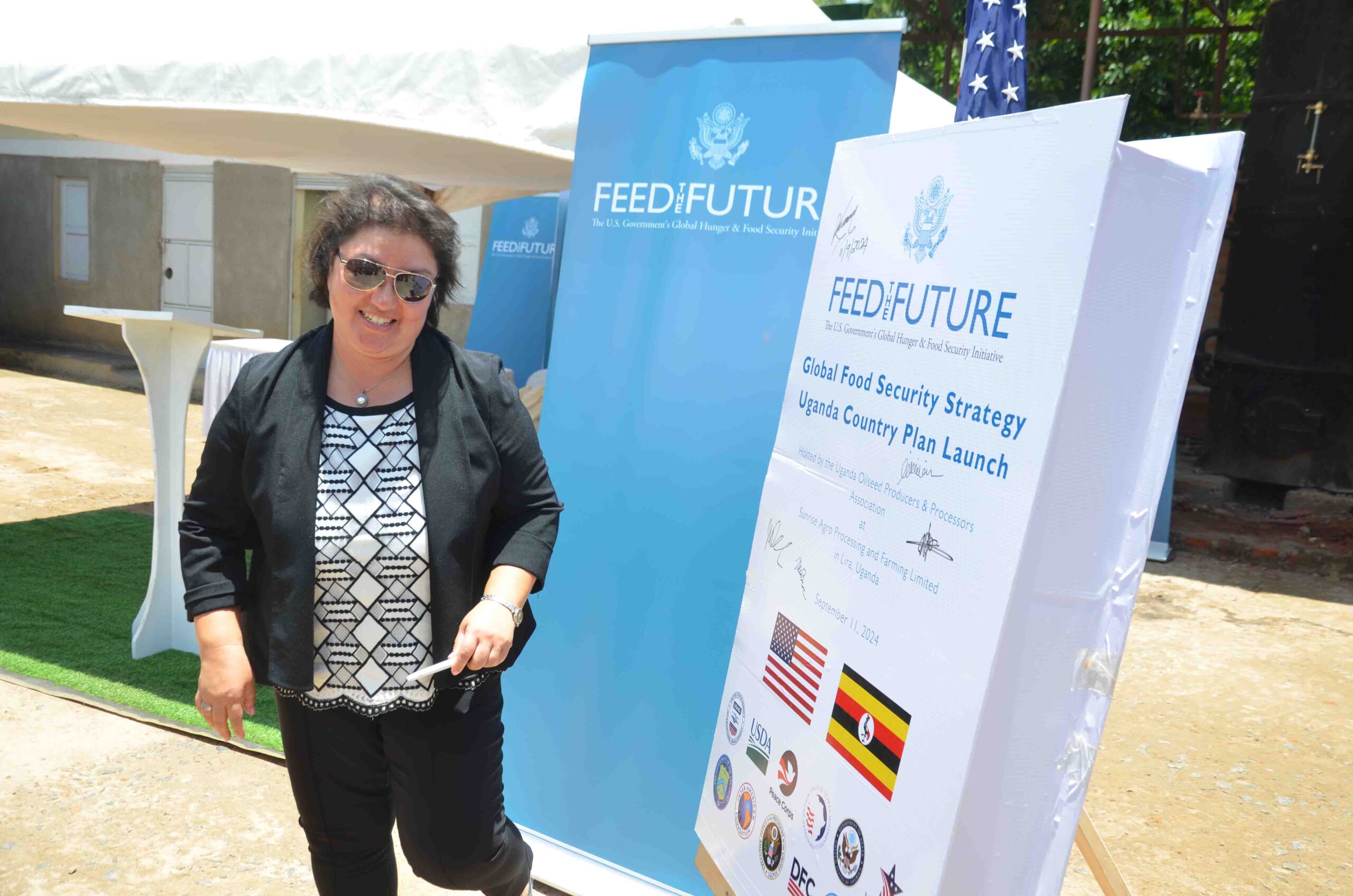LIRA, September 17, 2024 — Farmers in the Lango and Acholi sub-regions have been advised to form cooperatives to enhance their bargaining power and avoid selling their produce at undervalued prices to the middlemen.
At the launch of the Global Food Security Strategy Uganda Country Plan by the United States Agency for International Development [USAID] in Adekokwok Ward, Lira City, Christine Anono, the Lira District Community Development Officer, urged farmers to seize this opportunity to negotiate better prices for their produce.
“As I grew up, cooperatives were essential to my survival. However, today’s farmers often sell their produce at low prices. By organising into cooperatives, farmers can improve their negotiating power. Even if not all farmers are in cooperatives, community stores that are currently underutilised could be leveraged for bulk sales if properly supported and encouraged,” Anono said.
On September 12, USAID launched the Global Food Security Strategy Uganda Plan through its Feed the Future initiative, aiming to reduce hunger, poverty, and malnutrition in the country.
Anono’s remarks followed concerns raised by Justine Okello, a farmer from Agago District, about the lack of markets for sunflower production. “Sunflowers are abundant, but we have no buyers in the district. Farmers are sometimes forced to transport their produce to Lira, where there are more buyers and factories,” Okello explained.
On her part, Mia Beers, USAID Deputy Assistant Administrator for the Bureau of Resilience, Environment, and Food Security, highlighted that approximately 1.5 million people in Uganda, particularly in Karamoja and refugee-hosting districts, are in need of humanitarian assistance. She noted that the US and African leaders are committed to addressing the root causes of food crises across the continent.
Beers pointed out that Uganda, a regional food basket with bimodal rainfall, faces repeated weather shocks that lead to poor harvests and heightened food insecurity. She noted that an estimated 33 million people in East Africa are food insecure.
The project will focus on improving the Ministry of Agriculture’s capacity to utilise agricultural data for decision-making, supporting farmer organisations, enhancing value addition skills, and developing post-harvest handling capabilities.
Beers reiterated the US government’s commitment to combating global hunger, poverty, and malnutrition through this strategic initiative.
Buy your copy of thecooperator magazine from one of our country-wide vending points or an e-copy on emag.thecooperator.news
